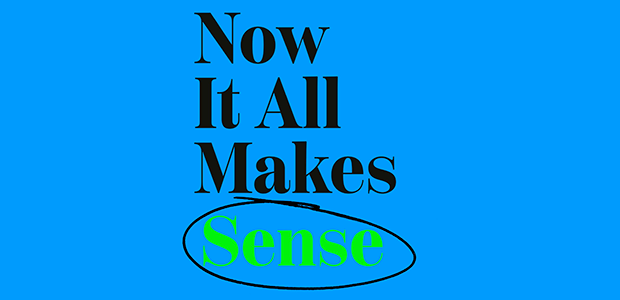
From LADbible to ADHD Chatter: How my ADHD affected my entrepreneurial journey
It was no surprise to me that people with ADHD are far more likely to start a business; we are natural entrepreneurs. Our internal desire to create stuff combined with an attitude to risk that many others might try to subdue (‘don’t do that, it’s too dangerous’ comes to mind) makes us the perfect candidates to start companies. We’re great at spotting trends, we’re calm in a crisis and our out-of-the-box thinking enables us to see opportunities that others miss.
I had my first attempt at the entrepreneurial life at six years old when I designed a board game. Other kids my age were happy playing in the park, but I preferred to be creating stuff at home.
In my first year of university, I spent half my student loan on a giant industrial freezer. It was as big as a small car. I filled it with frozen pizzas and when a student wanted a pizza after their night out, I would cook one and deliver it to whoever had ordered it. I had four students working for me, cycling around Oxford at silly times in the morning, delivering pizzas to hungry students. It was going great, until the local authorities shut me down because I didn’t have a food safety hygiene certificate.
All my early companies had the same life cycle:
1. I had an idea
2. I got very, very excited about that idea
3. I spent time and/or money on the idea
4. The idea was profitable for a while
5. I lost interest in the idea
Even with my pizza delivery company, I was relieved when the authorities shut me down because I knew my interest had faded. Being forced to quit gave me a ‘way out’ that avoided the feeling of shame when people asked me, “Why did you quit?”
I remember experiencing a lot of shame in the times between my abandoned business attempts. I excitedly shared my ideas with everyone around me but then had no concrete answer when people asked for an update six months later.
I didn’t know I was living with ADHD at the time; I honestly thought I was useless and a terrible businessman. Starting and then abandoning countless businesses left me feeling that I was destined to do something else. I had no idea about the classic ‘boom and bust’ cycle that is often associated with ADHD.
But the truth was, I was capable, I just wasn’t identifying what the good business ideas were and what the bad business ideas were. I wasn’t spending time separating the ideas that simply gave me a rush of excitement from the ideas that connected with my core motivations.
How to identify the good business ideas
Creating two companies, LADbible and UNILAD, on social media, a landscape that I love, made me aware of the importance of choosing to work on projects that connect with your core motivations. A good business idea is one that does exactly this.
Discovering what your core motivations are is a process that can be sped up by meditation, journalling, and deep introspective work, but in the context of an ADHDer starting a business, I always recommend a process called The Idea Shelf.
The Idea Shelf is a metaphorical shelf that all new ideas sit on. If after two weeks you’re still excited about that idea, you take it off the shelf and begin working on it. I know it’s tempting to immediately buy that domain, but if you can hold off for two weeks, you’ll find out if the idea truly connects with your core motivations and you’ll save yourself huge amounts of time and money.
If you impulsively start a business, like so many of us do, without researching whether or not it connects with your core motivations, you’ll quit when things inevitably get hard.
This is also referred to as your ‘why’. You need a solid ‘why’ because this is the thing that will keep you motivated after the honeymoon phase of a new business has passed. For example, when I started my first podcast called ‘Walk Away Wiser’ (where I impulsively turned my bedroom into a sound-proofed studio and spent a fortune on cameras but lost interest by the time the postman delivered them), I had a lot of excitement but I had no ‘why’. I love business, but I wasn’t in love with the idea of interviewing other business people. My lack of ‘why’ or core motivation meant I abandoned the podcast.
After my ADHD diagnosis, I fell in love with the idea of interviewing other ADHDers because I had a deep desire to learn about my own brain. I also felt a deep sense of injustice over the mostly negative coverage surrounding ADHD and I wanted to create a more balanced discussion around the topic. That was my ‘why’.
Whenever things get tough or my motivation disappears (trust me, it does a lot), I reflect on my ‘why’. I hyper focus on it. I read my journals where I have documented it. I mentally zoom in on it and more often than not it’s enough to get me over the procrastination hump, initiate a task and maintain my momentum.

